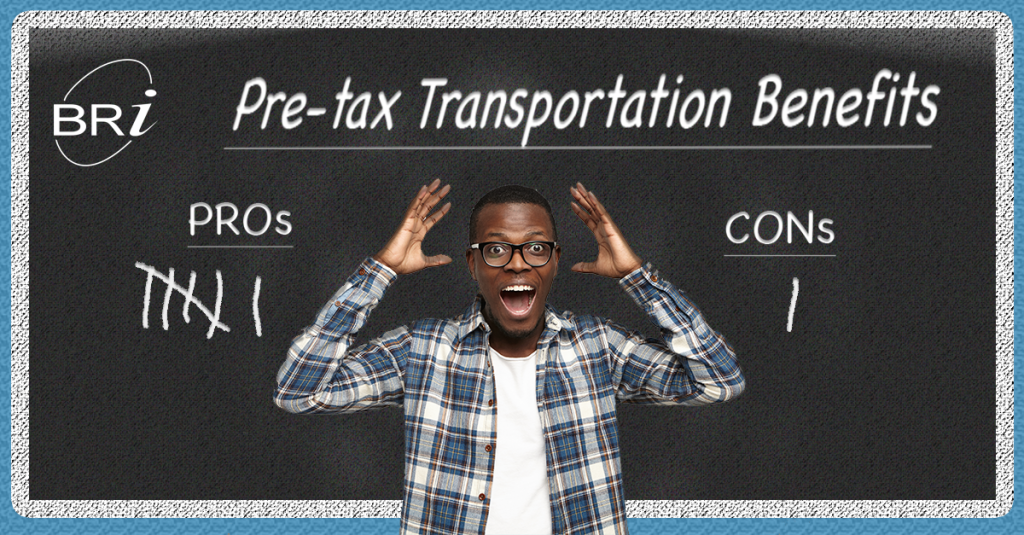In life there are always pros and cons to every situation. After Tax Reform was passed in December 2017, employers might find themselves at a point of indecision regarding the value of certain benefits. Since we are focused on all things pre-tax, we will take a closer look at why pre-tax transit benefits still make sense. As in life, what better way to find a path forward than to simply write out a pros and cons list?
PRO #1: My employees save on their commute.
Employees continue to receive tax-favored treatment of commuter benefits. This means, on average, an employee saves 30-40 cents on every dollar of their commute. A typical employee might spend $150 per month on commuting expenses. The works out to over $500 in annual savings. Check our this refresher on How Pre-Tax Deductions Work.
PRO #2: My payroll taxes continue to be reduced by elections.
Employers continue to save approximately 7.65% in FICA on each dollar elected through a pre-tax transit benefit program. This means for each employee which $150 per month, the employer saves $137 annual in reduced FICA expenses.
PRO #3: It keeps me in compliance with local transportation benefit ordinances.
Several metropolitan areas, including New York City, Washington D.C. and San Francisco, have local ordinances which require qualified employers to offer a transportation benefit program. The specific rules vary for each. However, in all cases, the easiest way to remain compliant with these ordinances is to allow employees to make pre-tax mass transit elections.
PRO #4: It allows me to attract and retain top talent.
In competitive talent environments, every benefit offering acts as a point of differentiation (or disconnect) for eligible employees. Employers that offer robust benefits offerings have a leg up on competition.
PRO #5: It’s environmentally friendly.
When employers encourage their employees to take mass transit, they are taking positive steps towards reducing carbon emissions. Who doesn’t like clean air?
PRO #6: I will have happier employees.
Various studies suggest that employees with a more enjoyable (and less stressful) commute are happier and more productive. By avoiding bumper-to-bumper traffic (and saving on mass transit), you are creating a “pro”ductive work environment.
CON #1 (and only): Employers can no longer claim commuter benefit expenses.
Employers can no longer claim commuter benefit expenses as eligible business expenses. This effectively makes these expenses subject to 21% tax. However, if you consider, your overall tax rate dropped from 35%, you are still in the winning column.
We hope this list of pros moved you further down the road regarding why pre-tax transit benefits make sense. But if you are still feeling indecisive when it comes to pre-tax transit benefits, discover more about how you can use them to recruit top talent and boost employee satisfaction.



